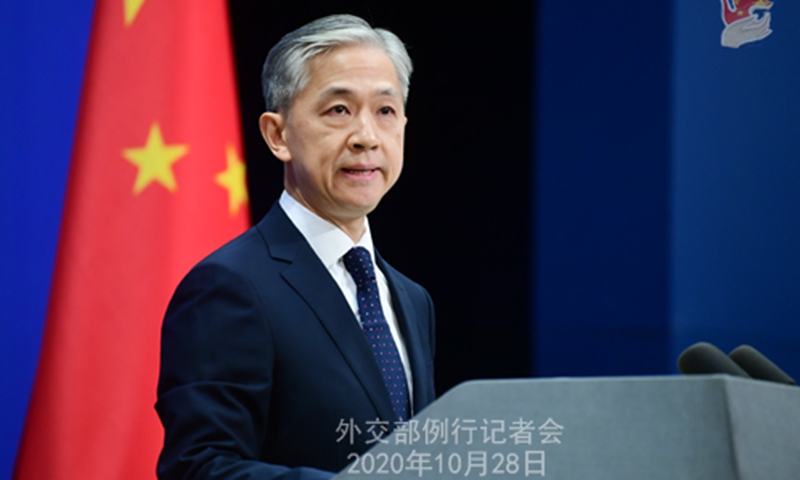Entry restriction policies protect both Chinese residents and intl travelers: FM
Source: Global Times Published: 2020/11/6 17:29:22

Wang Wenbin, a spokesperson for China's Foreign Ministry Photo: fmprc.gov.cn
China's Foreign Ministry on Friday explained that the new policies restricting entry for certain international visitors is a decision made based on the recent spike in imported cases in October as well as pressure on preventing the spread of COVID-19 domestically after China suspended entry for non-Chinese nationals from some countries.
China's number of imported coronavirus infections reached 515 in October, up 45 percent compared to the previous month. There have also been sporadic outbreaks domestically in Qingdao and Kashi, ministry spokesperson Wang Wenbin said during the routine press conference.
The new entry restrictions are not only in place to safeguard the hard-won fruits of domestic control, but also to help protect people from the risk of infection during their international journey, Wang said.
The policy stipulated that non-Chinese nationals who hold a valid visa and residence permit for work, private affairs and family reunions to China are temporarily not allowed entry. China has so far introduced the policy to Italy, Russia, India, the UK, France, the Philippines, Belgium, Ukraine and Bangladesh.
Another measure China issued recently that attracted much attention is a requirement starting on Saturday for dual tests; that is, both nucleic acid and IgM antibody tests. From Saturday, only people holding negative results for both will be allowed to enter China.
Nucleic acid testing has played an important role in preventing imported cases; however, there is not yet one method that is 100 percent accurate. To address this, the "dual tests" requirement will increase the accuracy of testing and work well in some pioneering countries, Wang said.
China will also require international arrivals to take tests at their transit places if their flights are not direct from their departure city to China.
Wang explained that there have been imported cases who tested negative before their travel but were infected upon their arrival, accounting for half of all infections. Requiring tests at transit locations is a necessary step and travelers should prioritize direct flights to reduce infection risks, Wang said.